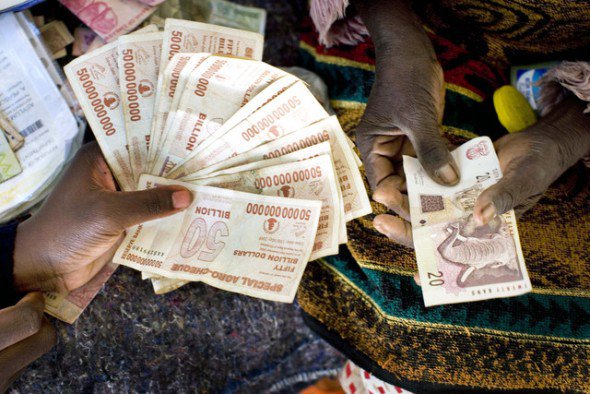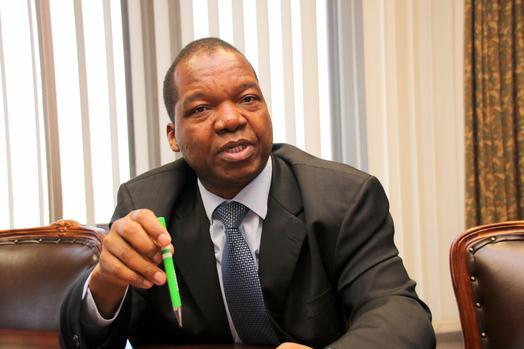It is common practice the world over that when mobile money is introduced into a market, the banking sector quickly acts against the service, with concerns like mobile network operators (MNOs) engaging in a banking services for which they are not licensed. Zimbabwe is no exception tp this phenomenon and at some point there was intense lobbying at the Reserve Bank of Zimbabwe (RBZ). Some members of Parliament even declared part of the mobile money offering illegal.
MUNYARADZI NYAKWAWA
While there are valid debates to be heard with regards to mobile money versus prudentially regulated banking services, particularly when the former is offered by a non-bank player such as an MNO, banking opposition tends to arise mostly when mobile money becomes successful, in large part to protect banks’ hold on the financial services sector.

The issue of whether mobile money should be offered by MNOs is one that has seen remarkable discussions and debate in the last five years since the launch of the first MNO-led mobile money platform in Zimbabwe.
In Zimbabwe, as is elsewhere, the debate has moved beyond the basic bank-led versus MNO-led debate. The question that needs answers is: Is mobile money really competing with the banks or this is a turf issue? If the RBZ is advocating for financial inclusion, is this not a case of misplaced priorities? I will try to answer these questions by looking at pertinent issues.
Transaction limit
Mobile money has limits that are set by the RBZ and banks do not, which is an advantage for banks.
Market
Mobile money is all encompassing, with the majority being the bottom of the pyramid clients, while banks are middle class going up to the corporate — advantage for banks.
Value terms
Zimbabwe statistics have shown that the banks still carry the larger portion of transfers in value terms. Companies still need working capital and they still approach banks. Real Time Gross Settlement still rule — advantage for banks.
Resident bank
Mobile money based savings accounts need a resident bank —complement.
E-value circulation
E-value circulating in mobile money is backed by a deposit in trust accounts with banks — complement.
Physical cash
Agents need physical cash to transact and e-value which they can get from the banks — complement.
It is my opinion that mobile money is not competing with the banks but it is actually complementing them. The results of such complements will be seen in the long run. Economic conditions being favourable, most banks would already be enjoying the benefits of mobile money in Zimbabwe five years on.
Mobile money has always been for the Bottom of the Pyramid (BoP) who will graduate to formal banking after acquiring financial literacy and financial independence from their experiences using mobile money. Most at the BoP like the new tobacco farmer, student, informal trader, cross-border trader and many others, will experience their first formal account through mobile money. Once they are in good business and financially literate, they can approach the banks for accounts and loans.
This, I would prefer to call graduation from mobile money account to a bank account. From experiencing the convenience of mobile money, the “graduands” will probably prefer a bank where they can link their accounts with mobile money wallets. In line with the RBZ ultimatum on financial inclusion, this may be a good time for banks to integrate with mobile money.
There has been little evidence to date to suggest that mobile money accounts are replacing existing bank accounts. In Kenya, World Bank estimates in 2010 showed that rather than hurting the banking sector, the mobile money sector has in fact had positive effects on banks. The number of bank accounts has actually increased threefold since the launch of Mpesa.
Closer to home, when mobile money was launched there was little or no trust in the banking system after the banking crisis that led to the closure of a number of banks. As such, a large amount of liquidity had been sitting at home in cash and the introduction of mobile money meant the cash was now finding its way to the banks through agent deposits into trust accounts held in different banks. The Postal and Telecommunications Regulatory Authority of Zimbabwe (Potraz) reports that mobile money deposits are around $460 million, which gives us an idea of how much mobile money has contributed to bank deposits.
It is my thinking that mobile money is complementing banks. It may be high time that banks find a mobile money network to integrate with and catch the small to medium enterprises (SMEs) while they are still small and grow with them, because once their business starts flourishing, they will probably open an account with a bank that is integrated with their preferred mobile money wallet for their convenience.
It is a fact that some of the transactions on mobile money are initiated by the banked population, but the inconvenience for some banked customers has been the cost in terms of time and money to access the bank branch, withdrawing cash and having to find an EcoCash agent to cash in. With mobile money-linked bank accounts, that whole process can be reduced to two minutes and can be done anywhere and anytime.
With a mobile money subscriber total of close to 7 million, I would assume everyone is using mobile money to a certain extent. Thus, the majority (if not all) of the banks customers are on mobile money. This may be the right time for banks to engage mobile money platforms for integration as they are probably denying their customers a service.
The notion that mobile money is competing with banks may not hold water in Zimbabwe. I actually think mobile money is helping to bring back confidence in the banking sectors in two ways, by bringing deposits to the banks through trust accounts and at the same time through financial deepening.
Let’s talk financial inclusion.
Munyaradzi Nyakwawa is a digital financial services consultant and financial inclusion analyst. He can be reached on munyaradzi.gerald.nyakwawa@gmail.com or on LinkedIn






